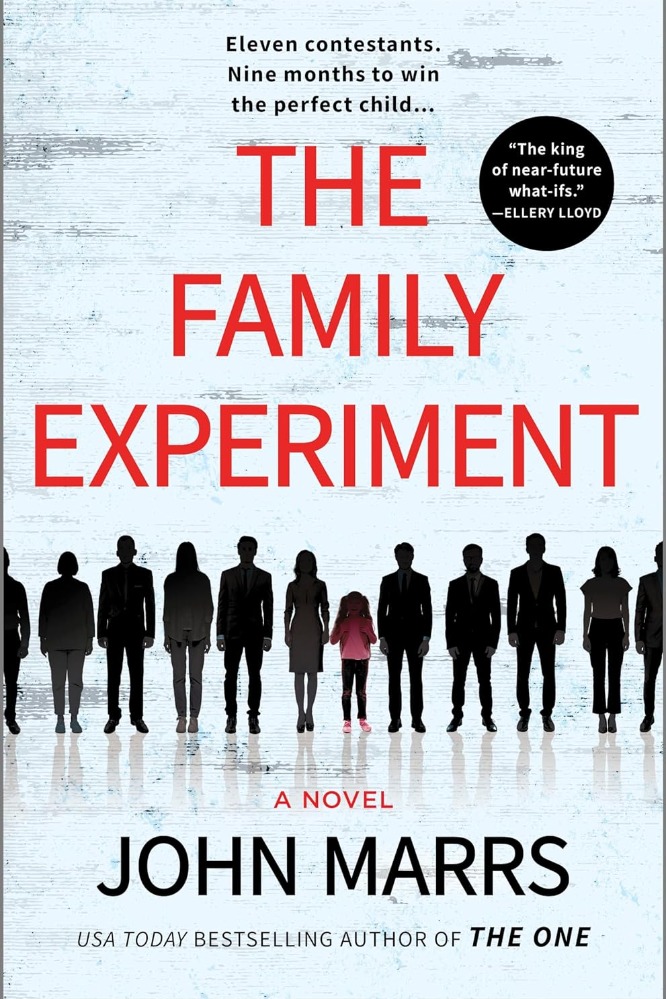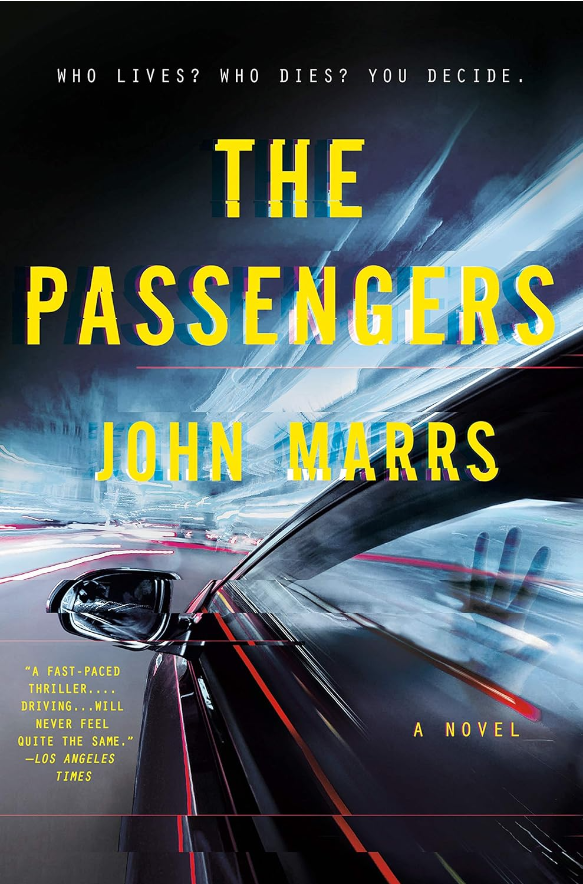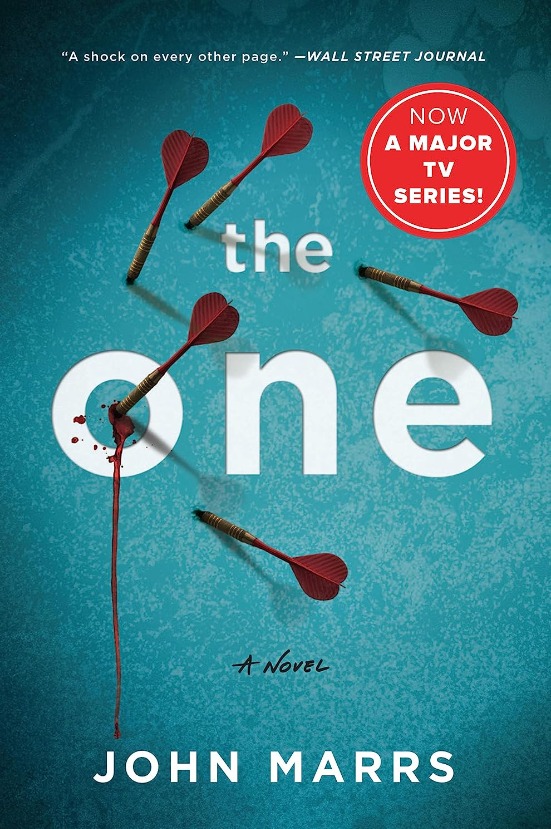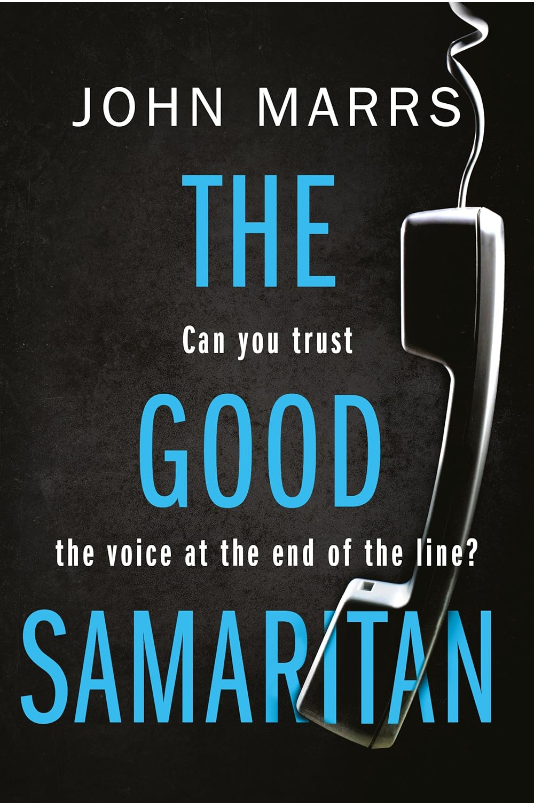Two of the most popular trends of this century have been the proliferation of reality television and the rise of Artificial Intelligence. Both have their fans, but both have their critics. In particular, the potentially harmful effects of AI have been a prevalent topic of discussion in the last year. Author John Marrs has written several books on the impact of unchecked AI in a dystopian future. His current novel, The Family Experiment, continues that trend amidst the backdrop of a wildly successful reality TV program. The result is one of his best books on any subject yet.
The Family Experiment is based on the concept of the Metaverse, which can best be described as the Internet on steroids. It’s the home of all sorts of virtual reality programming. Want to design and spend time in your dream home? You can build it in the Metaverse. Want a dream vacation anywhere in this world or beyond? You can find your Shangri-La in the Metaverse. And coming soon, according to the company behind the concept, are MetaBabies. They are toddlers who
exist in the Metaverse. They look, sound, and feel natural (for those with the right equipment) and can be raised by parents who can’t have or don’t want actual children.
To sell the public on the concept of MetaBabies, Re: Born, the company behind the idea, sponsors a new reality TV show called The Family Experiment. Five couples and one single parent will raise their MetaBabies for nine months. During that time, each MetaBaby will grow by leaps and bounds, “aging” from an infant to an 18-year-old in a series of monthly steps. The audience votes on the eventual winner, who will get a cash prize sufficient to buy their own MetaBaby or raise a family the old-fashioned way. What could go wrong?
As anyone who has read one of John Marrs’s similar books knows, plenty can and does go wrong. The Family Experiment follows the six competitors over those nine months, showing their ups and, mostly, downs. The first down occurs in the book’s third chapter when one couple exits the competition abruptly when the “father” shakes his crying MetaBaby too hard. Bad for the MetaBaby and its MetaFather, but good for ratings and the chances of the remaining contestants.
John Marrs’s books are filled with twists and surprises, and The Family Experiment has its share, so much so that I won’t reveal any more of the plot. Suffice it to say that each contestant has some skeletons in their closet, and those are gradually revealed throughout the book. (At one point, I wondered how carefully the show’s producers were vetting their potential contestants.) Unlike other authors, Marrs does not throw in twists and surprises just for the sake of fooling his readers. Each new piece of information readers learn puts people in a different light and adds to the understanding of the book’s overall storyline. The reality show eventually finds a winner, but the events that occur after the winner is announced finally explain everything and provide some of the biggest surprises in the book.
To bolster the apparent realism of the fictional world he creates, the author periodically inserts excerpts from the discussions in fictional chat rooms. The participants there expressed their pleasure or displeasure with the various contestants and gave their predictions about the outcome of the TV show. I don’t take part in these chat rooms, but the excerpts appeared realistic. The author also adds fictional news articles from politicians decrying the show’s concept.
The author’s fictional Great Britain is a society where the costs of raising children have become prohibitive for many. That’s in part because of various marriage laws that have been adopted. As a result, many parents send their children out of the country for a better life, which is often illegal. As a result, the idea of raising MetaChildren at a fraction of the cost of actual children is enticing for many. I’m not familiar enough with British laws and their economy to know how far-fetched this political scenario is. Still, it clearly concerns the author enough to inspire, at least in part, The Family Experiment. Although the book may have been inspired by the author’s political views and fears, it’s not a clumsy political tract. Instead, the author’s futuristic vision is scary, but the novel is always entertaining.
My only quibble with The Family Experiment is the lack of background concerning the characters before the competition begins. One pair of contestants is eliminated before most readers learn their names or know anything about them. This is not a typical sports novel where the author steers readers into rooting for or against specific contestants. Still, an introductory chapter giving information about the characters would have been helpful. That would easily fit in with the reality TV theme, where viewers see a brief video about each competitor before the contest begins.
The Family Experiment is one of John Marrs’s best novels, and that’s high praise indeed. The author displays his deftness in carefully selecting his language. I re-read some parts of the book after I was fooled to see if the author had lied to me earlier. I found instead that I misled myself by making certain assumptions about the author’s descriptions of people and events. As I said before, the author’s frequent twists and reveals aren’t just for show. They allow readers to peel back the fictional show’s innocuous façade and reveal the ugliness within. The Family Experiment arrives on bookshelves at a timely moment in the discussion of AI. However, that timeliness doesn’t detract from the book’s quality. This is an excellent example of cautionary speculative fiction and an entertaining, albeit sometimes chilling, read.
NOTE: The publisher graciously provided me with a copy of this book through NetGalley. However, the decision to review the book and the contents of this review are entirely my own.
In this clip, author John Marrs fields questions at the annual Harrogate International Festival:
Read other reviews of The Family Experiment:
John Marrs is an author and former journalist based in London and Northamptonshire. As a freelance journalist, he interviewed celebrities from television, film, and music for national publications including The Guardian's Guide, OK! Magazine; Total Film; Empire; Q; GT; The Independent and the Daily Express. He released his first novel in 2013 and became a full-time writer in 2016.
His third novel, The One, became a No.1 Netflix series, was translated into 35 languages and has sold almost a million copies. In 2020, he wrote the bestseller, What Lies Between Us, which has been optioned by Renée Zellweger's production company and won the International Thriller Writers award for Best Paperback Original Novel. It recently became his third novel to sell more than 300,000 copies. His second novel, Welcome to Wherever You Are was re-edited and re-released in 2021 with a new title, The Vacation. The re-edited version was shortlisted in the Wilbur Smith Adventure Writing Prize competition.
Header Photo: "Riot Radio" by Arielle Calderon / Flickr / CC By / Cropped
Silver Screen Video Banner Photos: pedrojperez / Morguefile; wintersixfour / Morguefile
Join Button: "Film Element" by Stockphotosforfree
Twitter Icon: "Twitter Icon" by Freepik
Facebook Icon: "Facebook Icon" by Freepik
LinkedIn Icon: "LinkedIn Icon" by Fathema Khanom / Freepik
Goodreads Icon: "Letter G Icon" by arnikahossain / Freepik
Certain images on this site appear courtesy of Amazon.com and other sponsors of Silver Screen Videos for the purpose of advertising products on those sites. Silver Screen Videos earns commissions from purchases on those sites.
© 2024 Steven R. Silver. All rights reserved.







